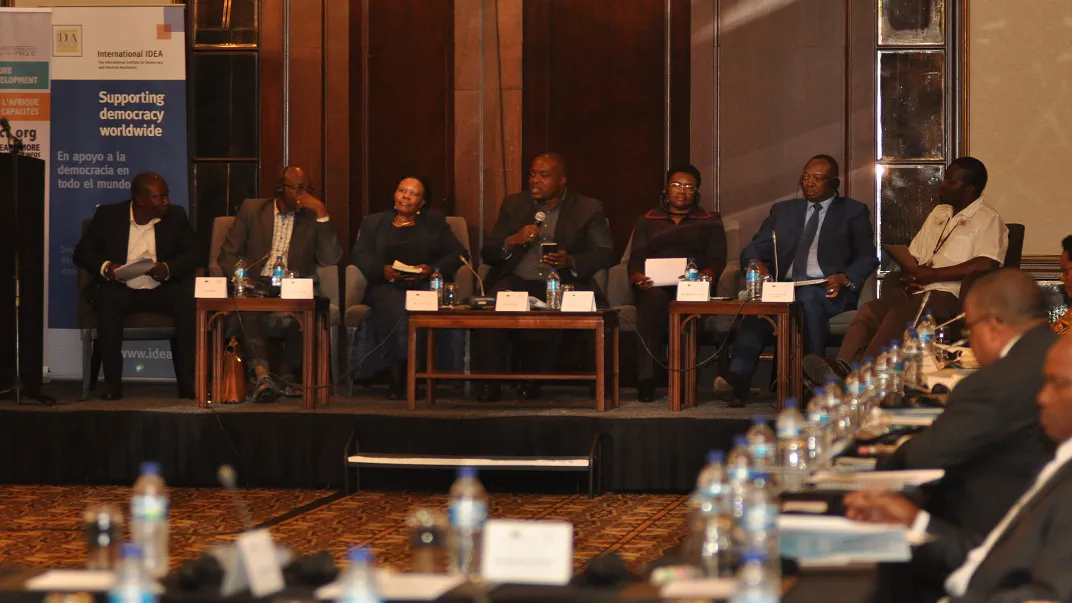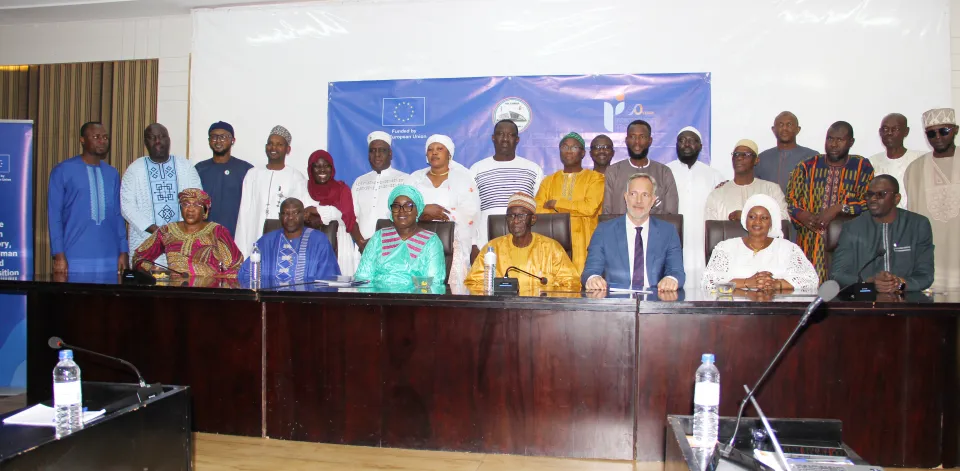Political parties and groups chart new developmental approach to natural resources governance in Africa

Africa has significant natural resource wealth. However, the continent suffers from the paradox of plenty, meaning that abundant endowments of natural resources do not lead to equivalent levels of prosperity for Africans in terms of broad-based development and resource-based industrialisation.
A new developmental approach to natural resource governance is therefore imperative and a prerequisite for African countries to achieve their socio-economic transformation and to realize the sustainable development goals (SDGs) through the proactive use of their resources.
Representatives of political parties and other groups who serve as critical voices in shaping scholarship and influencing thinking on Africa’s development trajectory—including ministers and senior political principals, parliamentarians, policymakers from African multilateral institutions, academics and civil society leaders—reflected collectively on this new approach during a high-level dialogue on the theme, “Political Parties and Natural Resource Governance: Building Capacities for a Developmental Approach”, organized in Cape Town, South Africa from 7 to 8 February 2017 by International Institute for Democracy and Electoral Assistance’s Africa and West Asia Programme and the African Capacity Building Foundation, in cooperation with the International Organization of Francophonie and the African Peer Review Mechanism.
The new developmental approach to natural resources governance is not an alternative to the African Mining Vision, but a refinement/reinforcement of this continental Framework. It implies a paradigm shift in natural resources governance in African countries characterized by:
- The priority given to the interests of citizens (including those from base communities) and their rights (political, economic and social) and to strengthening political participation (via political parties and parliamentarians) rather than to the extraversion logic marked by the primacy accorded to foreign and private companies—usually multinationals—interests involved in the natural resources sector;
- The proactive role of civil society organizations in designing, implementing and promoting transparency in natural resources governance policies;
- The existence of transformative visionary leadership and political will, focused on building capable developmental states—that are able to respond to citizen’s needs in terms of accountability, access to public service and security—and create a consensus on a legitimate developmental project through the optimal use of natural resources;
- The valorisation of the natural resources value chain through their necessary transformation at the local level (as opposed to their gross export) in order to contribute to job creation (especially for young people) and the industrialization of the State;
- The organization and rationalization of the operation of the private artisanal mining sector;
- The inversion of the logic of action of the organized private sector that must privilege the general interest of citizens of countries of extraction rather than the individual benefits of the shareholders;
- The strengthening of regional cooperation and integration among African countries in the exploitation of natural resources in order to promote the socio-economic transformation of the continent in the context of the Agenda 2063; the First Ten-Year Implementation Plan of the African Union Commission and the SDGs;
- The priority given to continental and regional frameworks and mechanisms for monitoring/evaluating the implementation of natural resource governance policies of African countries such as the African Peer Review Mechanism (APRM), the African Mining Vision and existing regional arrangements in the Southern African Development Community and Economic Community of Central African States regions, in addition to external frameworks.
Following the recommendations of the high-level dialogue, the New Developmental Approach to Natural Resource Governance will be presented to the members of the Pan African Parliament at the beginning of their May session, and to the APRM Forum of Head of States in January 2018.
In the meantime, a curricula on the New Developmental Approach to Natural Resources Governance and the African Mining Vision (Countries Mining Vision) will be developed for African Parliaments in partnership with key institutions including the African Mining Development Center of ECA, NDI, NEPAD Business Foundation, TW Network, OSISA, and Trust Africa. Specifically, the curriculum was agreed for an online summer school that initially will be focused on parliamentarians, to help address both opposition and ruling parties.
An inaugural session is expected in October 2017.




